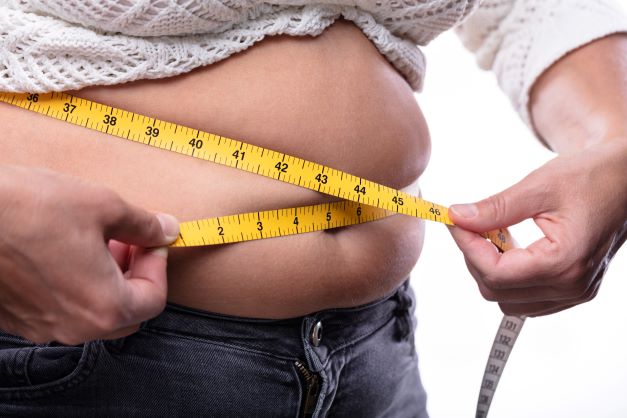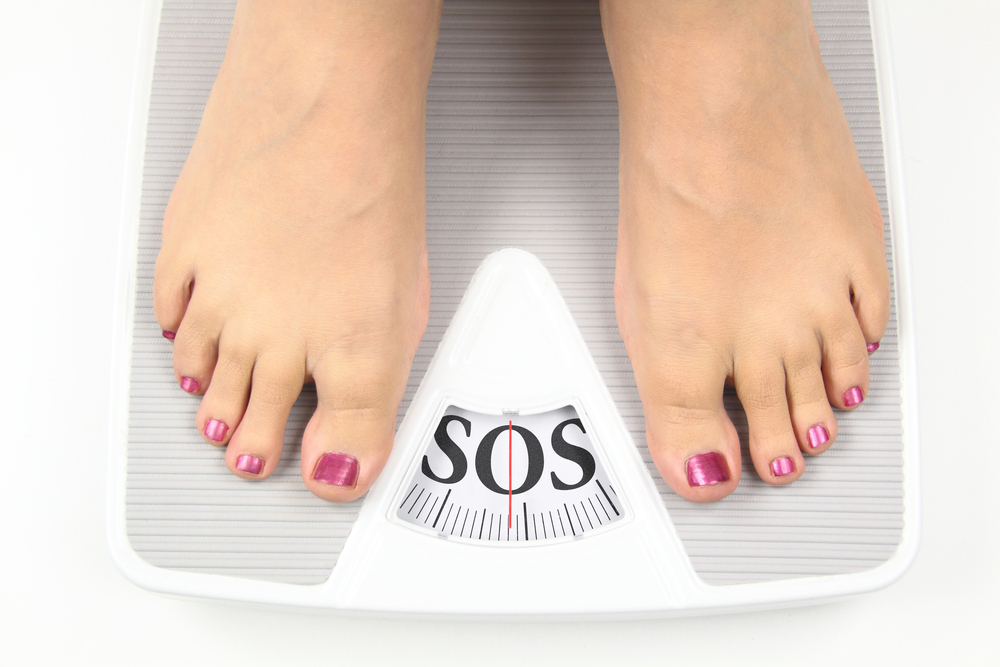You’ve noticed that, since hitting menopause, your jeans are fitting a little tighter and the number on the scale seems to be stubbornly inching upwards. This isn’t just a figment of your imagination – many women experience weight gain and an increase in body fat after menopause.
This might feel discouraging, especially when you’re sticking to your exercise routine and eating healthily, but it’s important to know you’re not alone. There are reasons, some of them hormonal, why this happens.
But it’s not all doom and gloom – there are also ways you can take control. Interested in learning how? Let’s dive into this important topic and get to grips with the changes your body is going through.
Dr. Gala’s Quick Take
The best way to prevent menopause weight gain and fat accumulation is to incorporate regular exercise and a balanced diet into your daily routine. Exercise helps burn off excess calories and build muscle mass, while a balanced diet with lean proteins, fruits, and vegetables can help manage and reverse weight gain during menopause. Hormone therapy may help, but it’s important to understand the associated risks before considering it as a solution.
What causes belly fat or menopause belly?

While you might blame menopause for that extra belly fat, it’s actually a combination of factors that contributes to the development of the so-called “menopause belly.” This includes lower estrogen levels, decreased physical activity, and slower metabolism. Menopause weight gain is a common phenomenon, but it doesn’t have to be your fate. Yes, your body is changing and it’s challenging, but you’ve got the power to turn things around.
As we age, fat accumulates more readily in the abdominal area. This shift in how your body stores fat is often blamed on hormonal changes that occur during menopause. However, it’s important to remember that weight gain isn’t inevitable. You can take control, embrace dietary changes, and ramp up your physical activity.
Belly fat, more than any other type, is linked to serious health issues. So, it’s key to understand that this isn’t just about looking good – it’s about your well-being. This is your time – time to combat the common weight and fat gain that happens after menopause. Embrace this period of change as an opportunity to become the strongest, healthiest version of you. You’ve got this!
When will menopausal weight gain stop?

Now that we’ve understood the causes behind menopausal weight gain, particularly the ‘menopause belly’, you might be wondering when this phase of weight gain will come to an end. It’s natural to feel concerned but remember, your power lies in knowledge and action.
Menopausal weight gain doesn’t have a definitive ‘stop’ signal. It’s a gradual process influenced by hormonal changes and aging. But don’t lose heart. You can take charge of your body. You can manage and even reverse weight gain with a proactive approach.
The menopause stage doesn’t doom you to a future of uncontrollable weight gain. You’ve got the power to change your body’s story. It starts with understanding that this is a normal part of the menopause process. The gain in body fat isn’t a fault, nor a failure, but a part of life’s cycle.
Next, it’s about harnessing that power. It’s about regular exercise, balanced nutrition, and positive lifestyle changes. It’s about celebrating your body at every stage while striving for health and happiness.
Does hormone therapy help to lessen weight gain?
You may be wondering if hormone therapy can help reduce weight gain after menopause. It’s a valid question, considering the hormonal changes you’re experiencing.
Let’s explore what hormone therapy is, how it could potentially impact your weight, and the risks associated with Hormone Replacement Therapy (HRT).
Understanding Hormone Therapy
In your quest to manage post-menopausal weight gain, you might wonder if hormone therapy could be the silver bullet. Hormone therapy can indeed help alleviate some menopause symptoms, but whether it can prevent women from gaining weight is a complex issue.
Research shows hormone therapy doesn’t necessarily prevent weight gain associated with menopause. It’s true, that as women enter menopause, they often gain weight and become less physically active, leading to an increase in body fat.
But don’t lose hope. Your power lies in a balanced diet, regular exercise, and a positive mindset. Stay motivated, because you have the control to combat menopause weight gain and maintain your health.
Hormone Therapy and Weight

So, does hormone therapy truly help in combating the weight gain associated with menopause? Evidence suggests it might.
Hormone therapy and weight management are closely linked. When you navigate menopause, weight gain can feel inevitable, but it isn’t. Hormone therapy may help you control that gain.
The fluctuating hormones that cause menopause weight gain can be balanced out with therapy, allowing your body to better manage fat and weight gain.
Remember, you’re powerful and capable. Combining hormone therapy with regular exercise and a balanced diet can help you master your menopause weight issues.
You have the power to control your health. Don’t let the fear of gaining weight after menopause holds you back. Take control, stand strong, and fight back.
Risks with HRT
While hormone replacement therapy (HRT) can indeed offer a promising solution to menopause-related weight gain, it’s crucial to understand the potential risks associated with this form of treatment. HRT, though helpful, carries a few risks. It can increase the chance of developing certain health conditions like heart disease, blood clots, and some types of cancer. Therefore, it’s not a one-size-fits-all solution.
Remember, you have the power to combat menopause weight gain. Regular exercise, maintaining a healthy diet, and lifestyle modifications are proven methods to lose weight effectively. Never underestimate the power of a balanced diet and regular physical activity. They’re your strongest weapons against menopause weight gain.
HRT can be part of your strategy, but it’s essential to understand the risks with HRT before deciding on this path.
What is the best diet for menopausal weight gain?

Incorporating a nutrient-dense diet and understanding your protein requirements can help you manage your weight and health during this time.
It’s important to consume 20 to 30 grams of protein with every meal … at least 50 grams every day.
It can be eye-opening to calculate the protein content in your common meals. And, protein powders aren’t the answer. You need to consume real food!
Understanding Hormonal Changes
As you go through your body’s hormonal changes during menopause, it’s crucial to understand how the right diet can help manage weight gain and improve your overall health. It’s no secret if you’ve gotten this far, that menopause can trigger a rise in fat accumulation, primarily due to fluctuating hormones. But you’re not powerless.
By eating a diet rich in lean proteins, fruits, vegetables, and whole grains, you can combat these changes. Limiting processed foods and sugars is key to preventing extra fat storage.
Regular physical activity is equally important. You can fight back against menopause weight gain … even if it feels like a BIG challenge.
Making conscious, healthy choices that empower your body, despite the hormonal changes will be required. Your health and well-being are worth the fight.
Adopting a Nutrient-Dense Diet
Building on the understanding of hormonal changes, it’s essential to focus on the power of a high-quality, nutrient-dense diet to manage menopausal weight gain effectively. Embrace healthy eating as your secret weapon. Remember, weight gain may feel like it came out of left field, but you can regain control.
This isn’t about deprivation, it’s about nourishment. Fill your plate with colorful vegetables, lean proteins, and heart-healthy fats. Use carbohydrates in the form of whole grains sparingly. There may be times when you need them to provide the energy to keep moving.
Protein Requirements After Menopause
Adjusting your protein intake can play a key role in managing weight gain after menopause and powering your overall health. Your protein requirements after menopause increase, due to the natural muscle mass loss that comes with age. Higher protein diets not only support muscle strength but also help in losing weight by keeping you fuller and longer.
But remember, balance is key. A diet rich in lean proteins, fruits, vegetables, and whole grains along with regular exercise is your secret weapon against fat and weight gain after menopause.
Eating too much protein in one meal will backfire on you. Keep your protein consumption to 20 to 30 grams in every meal.
What’s the best way to prevent menopause weight gain and fat accumulation?

To effectively prevent menopause weight gain and fat accumulation, you must incorporate regular exercise and a balanced diet into your daily routine. Exercise not only helps you burn off excess calories but also builds muscle mass. The more active you are, the more calories you burn, even at rest.
Strength training is your secret weapon. It’s fairly gentle and anyone can do it. It helps build muscle mass, which naturally decreases with age. The more muscle you have, the more calories you burn, even when you’re at rest. So, get active, lift some light weights, and watch as your body becomes a calorie-burning machine.
Your diet also plays a key role. Fewer calories don’t always mean better. You need to consume the right kinds of calories. Focus on incorporating more lean proteins, fruits, and vegetables, and consume whole grains sparingly.
Restricting calories too much will also backfire. Calorie restriction is a race to the bottom. You need 1,000 to 2,000 calories every day unless you’re using extended fasting for deep healing. Your body adjusts to your regular caloric intake over time.
Remember, regular exercise can help with hot flashes, one of the most common complaints among menopausal women.
You’ve got the power to take control of your health. It’s not about being ‘thin’, it’s about being healthy and strong. So, commit, embrace the change, and enjoy the journey.
Key Takeaways
- Menopausal weight gain is caused by lower estrogen levels, decreased physical activity, slower metabolism, and aging.
- Menopausal weight gain is a gradual process influenced by hormonal changes and aging, and there is no definitive ‘stop’ signal for it.
- Take charge of your journey through menopause with high-quality nutrition and regular exercise to help manage and reverse weight gain during menopause.
- Hormone therapy may help balance fluctuating hormones and manage weight gain, but it is important to understand the associated risks before considering it as a solution.
Conclusion
Don’t let menopause pull the wool over your eyes. You’re not powerless against weight gain. It may seem like a steep mountain to climb, but with the right lifestyle adjustments you can conquer this challenge.
Weight gain is common but it isn’t inevitable. You’re in control. So, lace up your sneakers, fill your plate with healthy choices, and show menopause who’s boss.
After all, you’re not just surviving menopause – you’re thriving through it.
“If you came into my office, I’d ask you a lot of questions that would help us connect the dots … so that together we can deal with your toxic stress.
Every situation is unique and you need a plan that works for you. Not a one-size-fits-all solution.
If you’re thinking you can’t come into my office, don’t worry. I’ve created a program with all of my initial recommendations to help you unravel the mystery. You can use it at home and at your convenience.
So if you’re thinking that managing chronic stress just isn’t possible … or even the answer … for you, I want to show you what you may be missing.
And how you can identify the toxic stressors that are creating your symptoms with my Human Energy System Reboot. You can get started HERE.” – Dr. Gala













